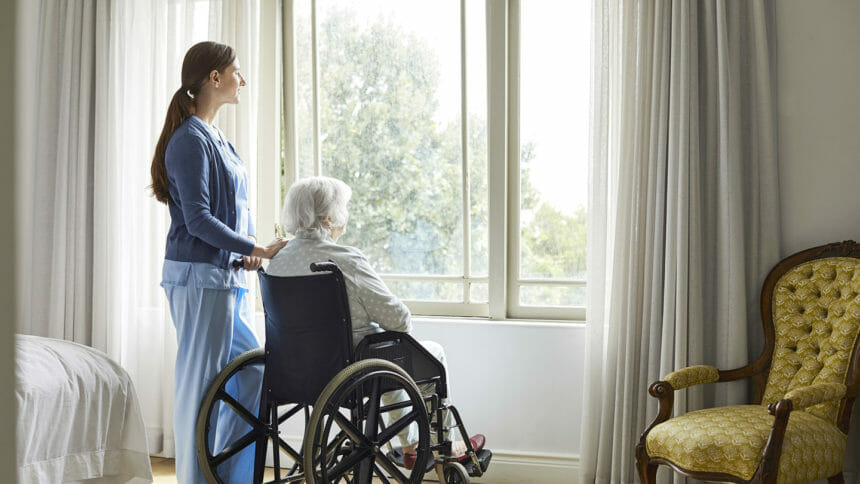
Consistent national quality standards and Immigration reform are among the items in a six-point policy agenda the Home Care Association of America rolled out Wednesday. The State of Home Care, Industry at Crossroads Report is intended to raise the stature of caregivers and put the industry “at the epicenter of national discussion,” according to HCAOA CEO Vicki Hoak.

“Our industry must unite around to advocate for change to ultimately elevate home care and the caregiving profession,” Hoak said in a virtual press conference.
The priorities include:
- Establishing a national quality standard for home care
- Collecting and using data to validate the value of home care
- Embedding home care in the healthcare ecosystem
- Financing home care in an era of rising longevity
- Addressing immigration to ensure the supply of caregivers meets demand
A critical shortage of home care workers to meet the growing demands of an aging population is at the heart of the HCAOA’s report. According to PHI National, demand for direct care workers will increase 60% from 4.6 million in 2019 to 7.4 million before the end of the decade. But the industry is having difficulty recruiting the necessary workers for a variety of reasons.
Hoak said establishing a consistent national quality standard for home caregivers would elevate the stature of the industry and attract more workers. Currently 30 states require home care workers to be licensed, but the remaining 20 have no such requirement. Although a national standard would allow caregivers to work across state lines, Hoak emphasized that any requirement should not put an unnecessary burden on home care agencies or consumers.
“It is important that we keep our care affordable,” Hoak explained. “When there is no [profit] margin, there is no mission. We have to make sure that we balance these things out and make sure that those who are in this business can sustain that business.”
Immigration reform among goals
The association is also working on proposed legislation that would create a special visa for immigrants who want to work specifically in long-term care in the U.S. Immigrants currently make up about a third of the direct care workforce.
“We feel that is an important niche that hasn’t been represented in today’s immigration laws and there really is no easy pathway to bring in a home care worker through our existing visa categories,” HACAO lobbyist Patrick Cooney said during the press conference.
Better days ahead for Build Back Better?
Cooney also said the association hasn’t given up hope on the Biden administration’s Build Back Better plan, which stalled in the Senate at the end of last year. The bill earmarked $150 billion for home-and-community-based services in the form of higher wages to home care workers.
“We’re certainly encouraging the House and Senate to get that done this year, get it over the finish line and get it to the president,” Cooney said.



